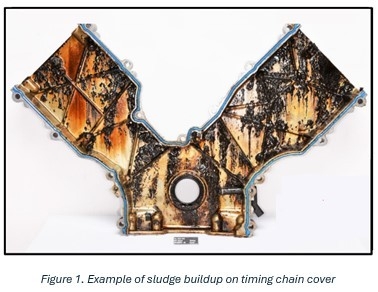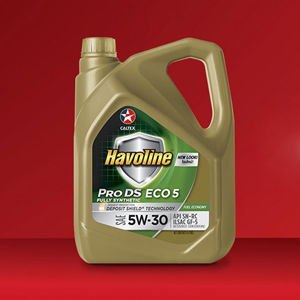Importance of Changing Your Engine Oil.. and the risks of neglecting it
Changing your engine oil regularly is one of the most important car maintenance tasks that you can do to keep your vehicle running smoothly and efficiently.
Engine oil lubricates, cools, cleans, and protects engine moving parts from wear and tear. It also helps to filter out impurities, debris, and pollutants from the engine, keeping it clean and efficient. Not only that, engine oil also prevents corrosion and rust, extending the lifespan of the engine.
What happens if I neglect the oil change?
If you don't change your engine oil on a regular basis, you are risking serious consequences for your vehicle and your wallet, which may lead to:
- Lower fuel efficiency: Degraded engine oil can cause deposits to build up on engine parts, such as the pistons, valves, and injectors. These deposits can limit the airflow or fuel supply to the engine, causing incomplete combustion. The engine may then be forced to increase the fuel-air ratio, which means that now more fuel is needed to produce the same amount of power.
- Higher emissions: Incomplete combustion can also lead to higher emissions of harmful greenhouse gases, such as carbon monoxide, hydrocarbons, nitrogen oxides, and other pollutants that can harm human health and the environment.
- Overheating: As oil gets contaminated with dirt, metal particles, and other impurities, it thickens. The oil then becomes less effective in flowing through the engine to dissipate heat, resulting in increased engine temperature.
- Engine damage: High temperature, pressure, and oxidation can degrade engine oil over time. As the oil loses its lubricating properties, it causes metal-to-metal contact that increases the friction and wear between the engine parts. The acidity in degraded engine oil can also corrode metal surfaces of the engine.
- Sludge buildup: As oil becomes contaminated over time. These particles will settle and cause sludge buildup. Sludge is a thick, sticky, gel-like substance that can clog oil passages and prevent oil from reaching all parts of the engine. This can lead to restricted oil flow and the engine may suffer irreparable damage, resulting in the complete loss of your vehicle or a very costly repair.


So how often should I change my engine oil?
The recommended interval for changing your engine oil depends on various factors, such as the type of oil (conventional or synthetic), vehicle model, condition of the engine, driving conditions, and the owner’s driving habits. For instance, if you mostly do short drives, in severe weather, with heavy loads, or in traffic that stops and starts, you may have to change your oil more frequently than if you mostly do long drives on highways in moderate weather.
You should always check your owner's manual for the specific guidance for your car and follow the service minder, if your car has one. These systems monitor how hard you drive your car and adjust the oil change frequency accordingly.
It is also important to check your oil level regularly and top it off if necessary. Some newer cars may require more oil top-offs in between changes. When you check your oil, you should also pay attention to the color. While oil color is not the only sign of oil condition, good oil should be a clear, brown-black color. If the oil is cloudy or milky, you need to service it as soon as possible.
Changing your engine oil regularly is a simple and cost-effective way to extend the life of your engine and avoid expensive repairs. Don't neglect this vital fluid and risk damaging your car. Schedule an oil change today and enjoy the benefits of a well-maintained engine.
Importance of Changing Your Engine Oil.. and the risks of neglecting it
Changing your engine oil regularly is one of the most important car maintenance tasks that you can do to keep your vehicle running smoothly and efficiently.
Engine oil lubricates, cools, cleans, and protects engine moving parts from wear and tear. It also helps to filter out impurities, debris, and pollutants from the engine, keeping it clean and efficient. Not only that, engine oil also prevents corrosion and rust, extending the lifespan of the engine.
What happens if I neglect the oil change?
If you don't change your engine oil on a regular basis, you are risking serious consequences for your vehicle and your wallet, which may lead to:
- Lower fuel efficiency: Degraded engine oil can cause deposits to build up on engine parts, such as the pistons, valves, and injectors. These deposits can limit the airflow or fuel supply to the engine, causing incomplete combustion. The engine may then be forced to increase the fuel-air ratio, which means that now more fuel is needed to produce the same amount of power.
- Higher emissions: Incomplete combustion can also lead to higher emissions of harmful greenhouse gases, such as carbon monoxide, hydrocarbons, nitrogen oxides, and other pollutants that can harm human health and the environment.
- Overheating: As oil gets contaminated with dirt, metal particles, and other impurities, it thickens. The oil then becomes less effective in flowing through the engine to dissipate heat, resulting in increased engine temperature.
- Engine damage: High temperature, pressure, and oxidation can degrade engine oil over time. As the oil loses its lubricating properties, it causes metal-to-metal contact that increases the friction and wear between the engine parts. The acidity in degraded engine oil can also corrode metal surfaces of the engine.
- Sludge buildup: As oil becomes contaminated over time. These particles will settle and cause sludge buildup. Sludge is a thick, sticky, gel-like substance that can clog oil passages and prevent oil from reaching all parts of the engine. This can lead to restricted oil flow and the engine may suffer irreparable damage, resulting in the complete loss of your vehicle or a very costly repair.


So how often should I change my engine oil?
The recommended interval for changing your engine oil depends on various factors, such as the type of oil (conventional or synthetic), vehicle model, condition of the engine, driving conditions, and the owner’s driving habits. For instance, if you mostly do short drives, in severe weather, with heavy loads, or in traffic that stops and starts, you may have to change your oil more frequently than if you mostly do long drives on highways in moderate weather.
You should always check your owner's manual for the specific guidance for your car and follow the service minder, if your car has one. These systems monitor how hard you drive your car and adjust the oil change frequency accordingly.
It is also important to check your oil level regularly and top it off if necessary. Some newer cars may require more oil top-offs in between changes. When you check your oil, you should also pay attention to the color. While oil color is not the only sign of oil condition, good oil should be a clear, brown-black color. If the oil is cloudy or milky, you need to service it as soon as possible.
Changing your engine oil regularly is a simple and cost-effective way to extend the life of your engine and avoid expensive repairs. Don't neglect this vital fluid and risk damaging your car. Schedule an oil change today and enjoy the benefits of a well-maintained engine.

About Author
Anita Leung has held various technical positions at Chevron specializing in engine oil development, including research on next generation additives and product development of Chevron's latest line of GF-6 passenger car motor oil. She is currently the North America Product Technical Specialist responsible for passenger car and motorcycle engine oil, as well as the Techron branded aftermarket fuel additive. Anita also holds a U.S. patent on a gasoline additive manufacturing process. She has a B.S. in Chemistry from the University of California, Berkeley, and a M.S. in Environmental Science from the Hong Kong University of Science and Technology.
ARTICLES FOR YOU
ARTICLES FOR YOU

Synthetic Oils Are The Wave Of The Future For Passenger Cars

Trends in Passenger Car Motor Oils: Evolving Engine Technology Driving Change

GM’s dexos1™ PCMO Specification Knowledge

Base Oil Basics: Quality Starts At The Base
Need more assistance?
Begin your journey towards world class products and services with Caltex.












